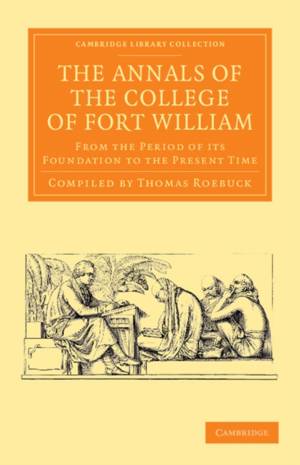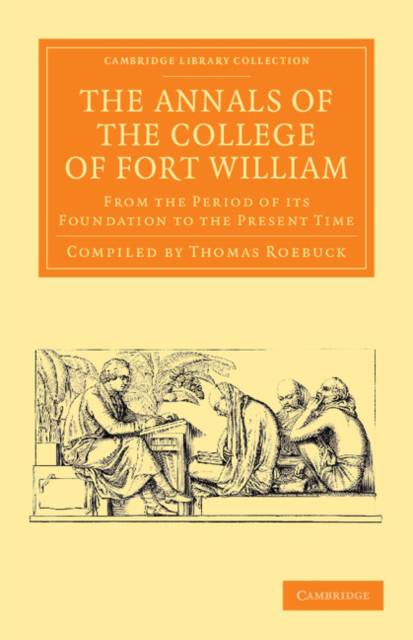
- Afhalen na 1 uur in een winkel met voorraad
- Gratis thuislevering in België vanaf € 30
- Ruim aanbod met 7 miljoen producten
- Afhalen na 1 uur in een winkel met voorraad
- Gratis thuislevering in België vanaf € 30
- Ruim aanbod met 7 miljoen producten
Zoeken
The Annals of the College of Fort William
From the Period of Its Foundation to the Present Time
€ 125,95
+ 251 punten
Omschrijving
Fort William College was an academy established in Calcutta in 1800 by the British colonial administrator Richard Wellesley (1760-1842). Its purpose was to train British officials in numerous oriental languages, which resulted in the publication of several pioneering reference works and thousands of translated texts. First published in 1819, this book was compiled by Thomas Roebuck (1781-1819), assistant secretary to the college's council, as a tribute to Lord Wellesley's work. It contains records of all the memorable events that had taken place at the college since its establishment; Roebuck believed this would help new students in learning the principles on which the college was founded, and how former students had benefited accordingly. Drawing on official documents and containing writings by Wellesley himself, the work offers historians and linguists a valuable insight into a highly influential institution in British India.
Specificaties
Betrokkenen
- Uitgeverij:
Inhoud
- Aantal bladzijden:
- 748
- Taal:
- Engels
- Reeks:
Eigenschappen
- Productcode (EAN):
- 9781108056045
- Verschijningsdatum:
- 18/04/2013
- Uitvoering:
- Paperback
- Formaat:
- Trade paperback (VS)
- Afmetingen:
- 140 mm x 216 mm
- Gewicht:
- 934 g

Alleen bij Standaard Boekhandel
+ 251 punten op je klantenkaart van Standaard Boekhandel
Beoordelingen
We publiceren alleen reviews die voldoen aan de voorwaarden voor reviews. Bekijk onze voorwaarden voor reviews.










